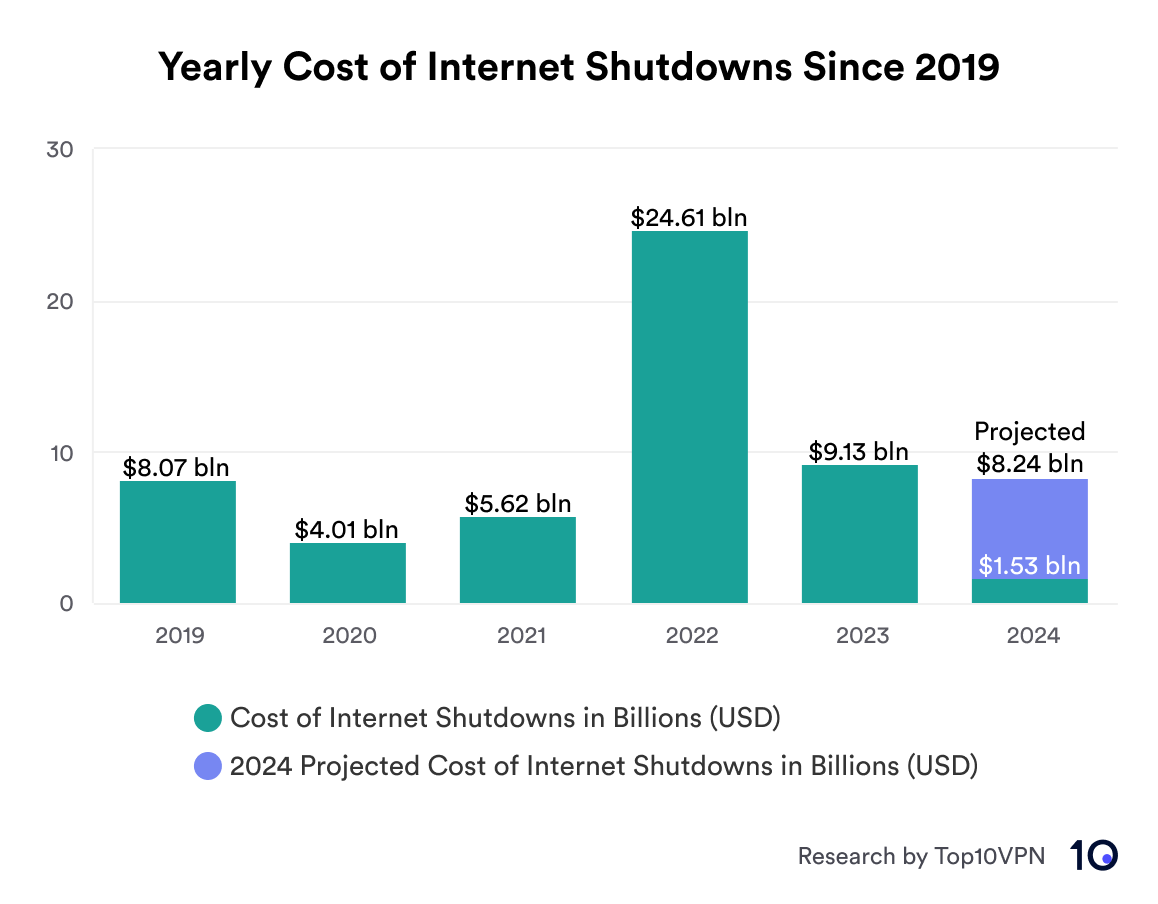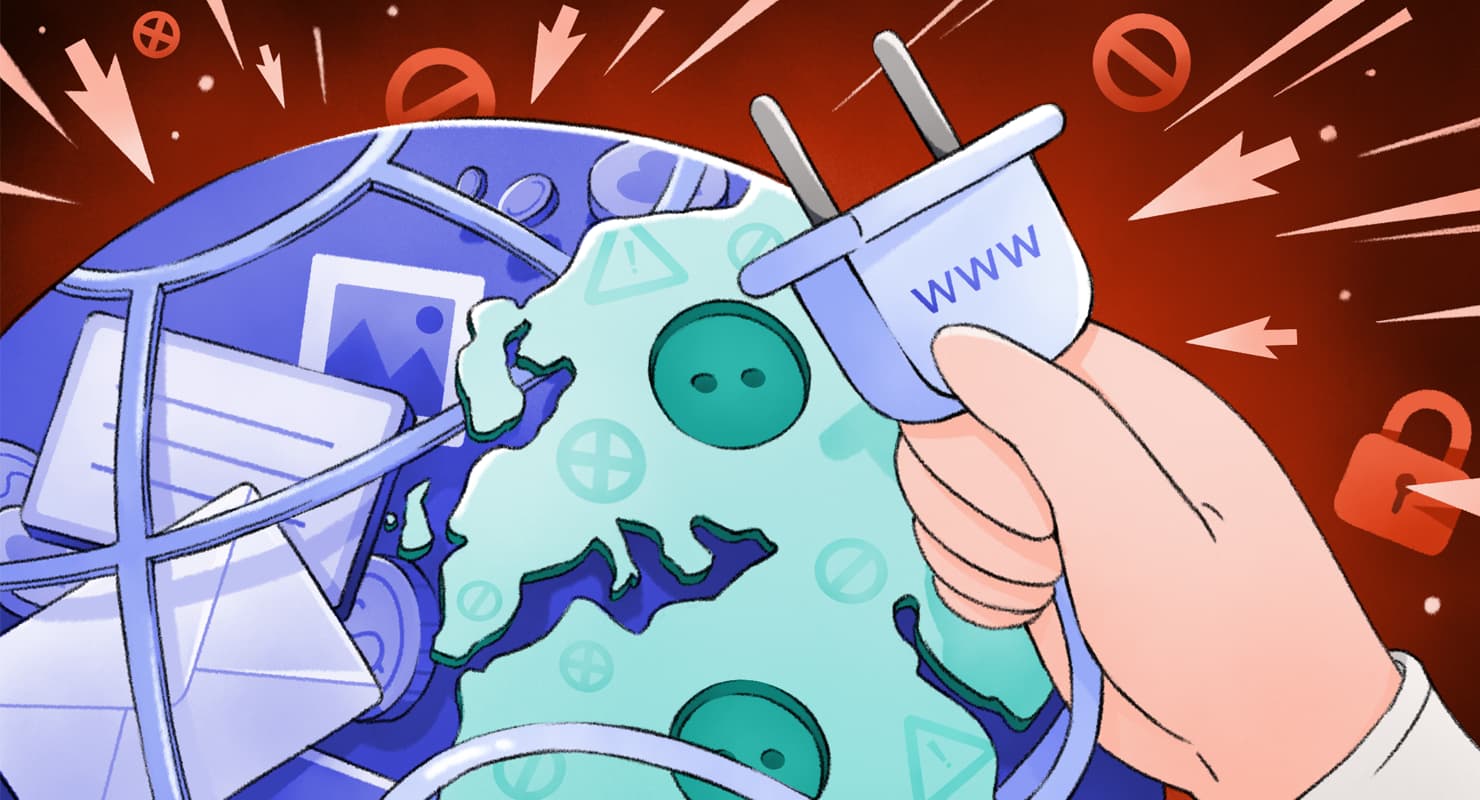What is the Cost of Internet Shutdowns Tracker?
This Global Cost of Internet Shutdowns index tracks the the total economic impact of every major deliberate internet outage and social media shutdown around the world as it happens.
This kind of deliberate disruption is internet censorship in its most extreme form. Not only do these internet outages infringe on citizens’ digital rights but they are also acts of economic self-harm.
The live tracker below shows the total cost of internet shutdowns for the year so far. Annual reports dating back to 2019 provide detailed analysis for each year.
Use the page navigation to jump to the relevant section to see a summary of that year’s key findings and a link to the full report. You can also use the following links to jump straight to those sections:
- The Global Cost of Internet Shutdowns Live Tracker 2024
- The Global Cost of Internet Shutdowns in 2023
- The Global Cost of Internet Shutdowns in 2022
- The Global Cost of Internet Shutdowns in 2021
- The Global Cost of Internet Shutdowns in 2020
- The Global Cost of Internet Shutdowns in 2019
The bar chart below shows the economic impact of all major internet shutdowns between 2019 and 2024. For the 2024 figure, the chart includes both the actual total economic impact in the year so far, as well as a projected total economic impact for the entire year based on the current trajectory.

Bar chart showing the yearly cost of internet shutdowns since 2019, with an estimated projection of total cost for 2024.
How Do We Calculate The Cost of Internet Shutdowns?
We monitor every national and region-wide internet outage and social media shutdown imposed by governments around the world in order to determine the duration and extent of the restrictions. This allows us to accurately calculate the economic impact of each internet shutdown using the COST tool.
This tool was developed by internet monitoring NGO Netblocks. It is based on indicators from the World Bank, ITU, Eurostat and US Census.
In both our Cost of Internet Shutdowns live tracker and annual reports, we include social media shutdowns, internet blackouts and severe ISP throttling in our calculations. These types of disruption to normal internet access are defined as follows:
- Internet blackouts: where internet access is completely cut off by the government. This extreme measure cannot be directly circumvented.
- Social media shutdowns: where access to popular social media, such as Facebook, WhatsApp or Twitter has been blocked. These can typically be circumvented by using a Virtual Private Network (VPN) application.
- Severe throttling: where speeds have been reduced to 2G, which permits the use of SMS and voice calls only. This is an internet blackout in all but name.
Why Are We Tracking The Cost of Internet Shutdowns?
We are staunchly opposed to internet censorship and governments withholding access to the internet as a form of social control.
Our goal in doing this work is to keep public attention focused on just how damaging internet shutdowns truly are. This damage is both direct, in terms of the economic and human cost, and indirect, in that it forces people to use unsafe VPNs to try to circumvent the restrictions imposed upon them.
We are also investigating the companies that provide the technology that make shutdowns possible, such as DNS filtering.
See our live tracker of VPN demand surges around the world
